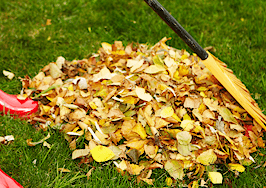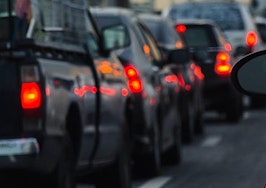- Sometimes what we think is the right thing to do is really the worst thing we can do.
- It's the little things that make the biggest difference in our results.
- Don't invest time, energy and money without understanding the outcome.
I see it all the time: Real estate agents perplexed about why their Facebook lead generation efforts aren’t bringing any of the promised rewards.
Namely, leads. Closings.
But here’s the kicker: They haven’t set up their presence to generate leads. For the most part (and this isn’t even their fault), they’ve done what they know — and that’s not much — because no one is showing agents what they need to do to get targeted, valuable leads from Facebook.
We’ve been fed a load of gibberish about branding and exposure and conversations and reach and engagement and absolutely nothing tangible — nothing that leads us anywhere except in circles.
Of course, some vendors have popped up that provide “automated resources” for us that fill in the gaps of all that gibberish I mentioned above. But, because it’s gibberish, guess what? Most of what these vendors are providing are a colossal waste of our money.
I hate to call these mistakes because the agents committing them simply don’t know any better, but they’re something I see happen all the time. Here are the seven that I see the most often:
First, when it comes to our Facebook page setup, we default to the “local business” category on Facebook.
Did you know there is another option? An option that actually gives you more avenues to drive and capture leads?
There is. It’s called “service.” It’s actually under the “Brand/Product” category with a sub-category of “Product/Service.”
Now, why would you want to categorize your page like this? Because you are a service! Seriously. Your bricks and mortar brokerage is the local business, but you are the service.
Now, there is something you lose when you categorize yourself as a service. You lose the space that the map takes up on the business page. You also lose the space dedicated to your location address.
However, you gain something important. You gain the map space you just lost. Space that you can use for a short description that includes a valuable call to action. You also gain an above-the-fold push for your videos, which means people see your call to action and videos rather than a map. These are infinitely more valuable.
Second, most agents name their business page using either their name, their brokerage name or their franchise name.
I’m specifically talking about the display name of your page, not the URL name. Why is this a problem? Well, for many reasons.
- What happens when you change your brokerage?
- What happens when your brokerage goes bankrupt?
- What happens when your brokerage merges with another brokerage?
- What happens when your brokerage owner changes franchises and thus brokerage names?
- What happens if you start or stop a team?
- What happens if you get married or divorced or change your name for any reason?
Why are these questions a big deal? Because you get one opportunity to change the name of your page. And if you have more than 200 page likes, that opportunity is at the discretion of Facebook, period.
In other words, if you spend the time, energy and money building your presence on Facebook and one of these things happen, you’ve just thrown away all of your efforts.
Another big reason real estate agents shouldn’t use their own, brokerage or franchise name is because the customer doesn’t like you — they like themselves. That means they aren’t likely to connect with your name; they are likely to connect with what you can offer them.
So think about naming your page something different. Something local. Something with a lifestyle focus. Something that interests your customer. Something they would consider valuable.
Third, one of the most-asked questions I get from real estate agents is: “What should I share on my Facebook business page?”
What you share on your Facebook business page should be what your customer needs. It needs to be relevant to their lifestyle. It needs to solve their problems. It needs to be focused on walking them through their journey, including buying a home, living in the community, selling a home and repeating the process.
Remember, their journey is about 10 to 12 years long (that is the average length of time people own their homes), so you need to go on that journey with them through the content you share.
Don’t focus on a random calendar of events because you aren’t their activities director. Make it about their lifestyle, which includes the journey they go through with their home.
When they start thinking about moving, what are their needs? What are their problems? Did they get married? Adopt? Give birth? Bring another generation into their home? Get divorced? Experience a death? Change jobs?
Each one of these experiences can (and most are likely to) happen in the lives of your customers. What do these mean for their lifestyle? Their home? That is what you want to share on your business page.
Here’s a clue: run away from national statistics, which bore consumers. They’ll scroll on past.
Why? Because national statistics are meaningless to them. Most real estate agents don’t understand how national statistics drill down and relate to their home, so how should a customer who is outside of the real estate industry be able to connect those dots?
Be very careful with local statistics. If all you are doing is pushing out stats and saying “now’s the time to buy” — that is not helping your customer. Not one iota. It’s pushing your agenda, which is to have more closings. Don’t kid yourself that it’s for your customer.
If you want local statistics to be for your customer, share a single statistic and drill it down to explain exactly how that statistic affects them or their home, personally. If you can’t explain it to a 15-year-old so they understand it, you don’t understand it yourself — and neither will your customer.
Fourth, stop chasing the algorithm.
What do I mean? I mean that real estate agents (and agents, you are not alone, it’s not just the real estate industry) focus on chasing the algorithm through reach and engagement.
We focus on trying to get people to respond to the posts we put on our Facebook business page.
Here’s a tip: it’s impossible to chase the algorithm. In fact, when you chase it, Facebook can and will penalize you. Here’s what I mean:
There is no perfect post. There just isn’t. Just because a post works for someone, somewhere and gets likes, comments or shares, doesn’t mean it actually works to bring in leads.
Seriously, reach and engagement do not equal leads. Many vendors out there like to provide “guaranteed reach” or “guaranteed viral” posts, and these are absolutely meaningless for you.
First of all, the guaranteed reach is simply running ads. Period. That’s it. And with that guaranteed reach, there is zero guarantee of results (and zero guarantee that those reached are targeted prospects, other than that they might live in your area). And that means there’s no guarantee of you funneling that reach into your database.
Spend your money driving your ideal customers into your database, not pushing out content to get a guaranteed reach. We focus on the wrong things, which reap horrible results.
With “guaranteed viral” posts, you are potentially — heck, you are probably — killing your ability to have a highly valuable lead funneling Facebook business page.
Why? Because you are not making a logical connection with your tribe (your page likes) and because you are attracting untargeted, uninterested page likes. When you hold contests for page likes or push out viral posts, they go out to people who are completely disconnected from you.
If you want a strong, consistent, stable flow of leads into your database — you don’t want to focus on reach or engagement. Ever.
Fifth, we worry too much about our Facebook provided unique URL.
What am I talking about? I’m talking about the www.Facebook.com/YourPageName URL that Facebook lets us have.
We can’t figure out what to put there. Should it be the same as our website? Should it be the same as our Facebook business page name? Should it be local keywords?
Here’s the thing. In general, no one really looks at it, so my suggestion is to align it locally. In other words, use your local town or city name and another descriptive word.
For example, www.Facebook.com/ChicagoLiving (at the time of writing this, there isn’t a page that is published using this unique URL — this is only an example).
Although no one really looks at it, if you want to use it on any print pieces and drive traffic to the page, you’ll want something short and easy for your customers to use and connect with.
And yes, you should be driving traffic to your Facebook business page, especially really cold offline traffic. That connection is a way to start warming your traffic up to you and to get them into a space that allows you to keep retargeting them everywhere they go.
But always remember, you don’t own the real estate, so your goal is always to be driving that same traffic to your website and your database.
Sixth, don’t succumb to Facebook’s pressure tactics to get page likes when you first start your page.
This one is a doozy, and I’ve trained on it a plethora of times (and I’ll keep training on it). Don’t ask your friends. Don’t ask your colleagues. Only gather targeted page likes.
Why would you do this? For many reasons. Think of your Facebook business page likes as another database of sorts. That database is the beginning of building your tribe. People you want to work with, and people who want to work with you.
When you have a highly targeted tribe, you get the benefits. You get an engaged audience. You get energy on your page. You get freshness. All of those things affect your page’s health in the Facebook News Feed. In other words, they affect your results in the algorithm.
Although I advocate not chasing the algorithm, I also advocate not sabotaging your presence in the algorithm. Untargeted (detrimental) page likes will sabotage your page.
Seventh, don’t create multiple pages.
For some reason, this one is a struggle for agents and quite frankly, I can totally relate. I struggled with it. Heck, at one time I had a Facebook business page for every subdivision I targeted in my area. What a colossal waste of time and energy!
Don’t create a different page for each town in your area. Don’t create a different page for each neighborhood. Focus on your most important, main area for your page.
Why? Because creating and maintaining multiple pages divides your assets. On Facebook, you’ll get better traction with one page. There is a snowball effect. The more traffic you have on a page, the more it’s rolled into the algorithm, the more it’s pushed out in your tribe’s news feed.
When you have multiple pages, you divide your focus. In an age when we are already overwhelmed by shiny objects and squirrels and the book “The One Thing” is a novelty (it’s a powerful book — I suggest you get your hands on it and read it over and over again), we need to take a step back and stop trying to create niches in every single thing we do.
You can not maintain multiple pages. You might think you can, but if you aren’t getting a steady flow of closings from the page you already have, what makes you think that dividing your focus will give you different results? In reality, you’ll get even less than you are already getting.
When you have multiple pages, it will monopolize your time, and you’ll be on the constant hunt trying to figure out how to make multiple pages work for you.
There is a reason that canned content doesn’t work to bring in closings — the same thing goes for multiple pages. Your customer knows when your focus is divided and you are pumping out robotic content. They know when you are just in it for the lead and not for them.
You’ll be a jack of all trades and a master of none. You’ll be less effective in your Facebook lead generation efforts.
OK, now my questions for you are:
Are you doing any of these things and, what are you going to do to change it? What are you going to do to stop sabotaging your Facebook lead generation efforts?
And as always, I created a checklist of “The 7 Things We Do That Sabotage Our Facebook Lead Generation.” Download it. Print it. Reference It. Use it to change your Facebook lead generation results.
You can click here to download the checklist.
Christina Ethridge is the founder of LeadsAndLeverage.com, helping real estate agents capture, convert, and close Facebook leads.









